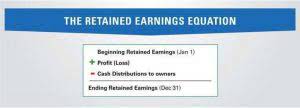
Financial accounting deals mainly with financial transactions and focuses on the rules for processing financial records to create the statement of financial position and performance and cash flow statements. Accountancy focuses on the principles for gathering accountancy and using financial data. It gives accounting a framework and practices that accountants can use to identify, collect, record and report financial information.
The function of bookkeeping, and how it fits into accounting
During tax season or other financial reporting periods, bookkeepers supply the detailed records that accountants need to prepare tax filings, financial statements, and forecasts. Collaboration streamlines financial operations and helps businesses stay compliant with tax and regulatory requirements. In summary, while accounting and accountancy are closely related, they serve different purposes and encompass different activities within the financial realm. Accounting, on the other hand, uses the data generated by bookkeeping to analyze, interpret, and report financial information.

What Idaho employers value in online graduates
It’s a much broader field that requires analytical thinking and professional judgment. It clearly defines the duties and roles of an accountant who is required to prepare, check and interpret financial accounts. Accountancy handles both financial and non-financial statements of a QuickBooks ProAdvisor business.

Accountancy vs. Accounting and Bookkeeping
Accountants can aspire to roles like Chief Financial Officer or specialize in fields like forensic accounting or tax consultancy. Continuous learning and adapting to technological advancements are key to career progression in these fields. In today’s rapidly evolving business landscape, understanding the nuances of Accounting vs Bookkeeping and understanding their unique roles in financial management is more critical than ever. These two pillars of financial management, though closely linked, play distinct roles in the success of any business. This comprehensive guide delves into the heart of accounting and bookkeeping, unraveling their intricacies and demonstrating their pivotal roles in efficient financial management.
All three of these play an important role in shaping the finance department of a business so that it is in compliance with the regulations, and people concerned can make better informed decisions. The scope of an accountant is to use the bookkeeping data and prepare it into comprehensive reports for allowing investors and other stakeholders to make data driven decisions. An economist is concerned with charting as well as interpreting financial patterns of an entity, agency, company, or organization. An economist is a practitioner who falls under the social sciences discipline of economics. As an economist, the individual is tasked with different responsibilities including in such fields as macroeconomics analysis, microeconomic analysis, specific markets, and financial statement analysis. The two are terms used by professionals in the business field but are entirely different.

Bookkeeping and accounting are both vital and complementary tasks in a business. Accounting requires more training and more rigorous credentials than bookkeeping, and accountants typically earn more money than bookkeepers. Most small businesses work with a bookkeeper year-round and hire an accountant to prepare taxes once a year. You might also work with a firm that offers both services under one roof, which can ensure consistency. Medium and larger businesses are more likely to work with an accountancy firm year-round or even hire an in-house accountant for business strategy and financial forecasting.
- Accounting, on the other hand, is the broader practice that involves interpreting, classifying, analyzing, reporting, and summarizing financial data.
- Many go on to earn advanced degrees, such as a master’s in accounting or an MBA with a concentration in accounting.
- The short-term and long-term financial data classifications are based on the notion that the organization’s business will continue.
- These steps require a more in-depth understanding of finances, so an accountant will typically perform them.
- There are critical differences in job growth and salaries between the two.
Accountancy vs Accounting: Key Differences
- It plays a significant role in framing policies and budgets for businesses and controlling the activities.
- However, if you run a retail or manufacturing business, even with just one or two people involved, a professional bookkeeper might be necessary to help you track complex finances for tax filing.
- The financial statements prepared by financial accountants are also used to attract potential and prospective clients.
- Professionals, including accountants, learn accountancy which lays out the principles and uses accounting to create a financial report.
- It involves recording, summarizing, classifying, and analysing accounting data.
- The BLS notes that job growth for accountants should track fairly closely with the broader economy.
In a small business or startup, you’ll likely hire a bookkeeper as a part-time employee or an independent contractor. In a business of one (like freelancing or consulting) or a family business, an owner might be responsible for bookkeeping if the financials are very simple. However, if you run a retail or manufacturing business, even with just one or two people involved, a professional bookkeeper might be necessary to help you track complex finances for tax filing. Book-keeping is essentially the systematic recording of financial transactions in chronological order. It’s the most basic level of financial record-keeping, focusing purely on accuracy and completeness.

- Accountancy focuses on the broader principles without going into the depth.
- Bookkeeping and auditing are similar in the way that both of them deal with the financial records of the business involved.
- Still stumped on how to handle bookkeeping vs. accounting tasks for your small business?
- The two careers are similar, and accountants and bookkeepers often work side by side.
- It’s about managing financial systems as a whole, ensuring the business operates within legal and ethical standards, and providing advice for long-term success.
- Typical bookkeeping tasks involve recording transactions, maintaining journals, reconciling bank statements, processing payroll, and generating periodic financial reports like trial balances.
- Whether your business is large or small, you must have an understanding of your accounting needs.
Those in accounting usually handle data entry, analysis, and reporting, such as accountants, bookkeepers, or payroll specialists. Accounting, on the other hand, refers to the process of maintaining those records. Accountancy can cover such areas as forecasting, budget bookkeeping planning and cost analysis, which are important concepts for those who want to be business managers or executives someday. Black Ink will send you a free analysis of your current state and what would be the cost of managing either a separate accounting and bookkeeping services or a complete solution across New York, USA. Do get in touch and we will be happy to consult you with our bookkeeping services in NY, New York, USA.
